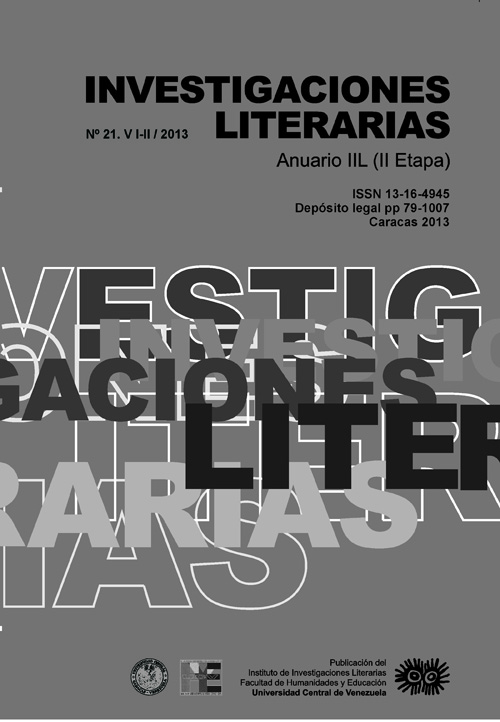LAS ALAS FATALES DE MARÍA CALCAÑO: REIVINDICACIÓN DE LA VOZ FEMENINA MEDIANTE UNA POÉTICA TRANSGRESORA
Palabras clave:
Poesía venezolana, representaciones literarias de la mujer, erotismo, trasgresión, Venezuelan Poetry, Literary Representations of Women, Eroticism, TransgressionResumen
Desde su primer libro, titulado Alas fatales (1935), la poeta María Calcaño desafió la concepción del papel social de la mujer que imperaba en Venezuela durante la primera mitad del siglo XX. Para ello se sirvió de un hablante lírico femenino que oscila entre una inusual iniciativa en la expresión de su erotismo y la tradicional pasividad de su condición, subordinada a la voluntad masculina. De esta tensión entre el yugo de la convención y el atisbo de una libertad del deseo nació una propuesta que subvirtió la representación femenina en la literatura local y reivindicó a la mujer como productor intelectual.
ABSTRACT
From her first book, Alas Fatales (1935), the poetess María Calcaño defied the conception of the female social role that prevailed in Venezuela throughout the first half of the 21th Century. To that end, she made use of a female speaker who swings between an unusual initiative in expressing her eroticism and the traditional passivity of her condition, subordinated to masculine will. This tension between the burden of social standard and the glimpse of a freedom of desire gave birth to a poetic design that subverted the literary representation of women in Venezuelan literature and reclaimed women as intellectual producers.

